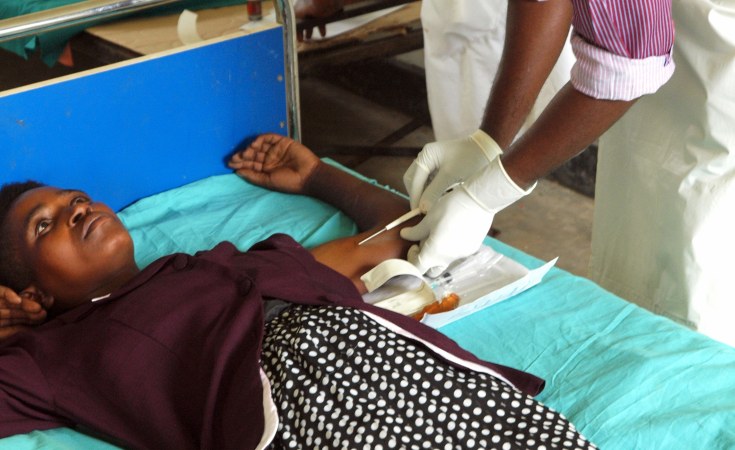Cape Town — The number of girls who become mothers before they are 15 years old is set nearly to double in sub-Saharan Africa by 2030, according to a new United Nations report.
The report says West and Central Africa account for the world's highest proportion of reported births before the mothers turn 15. In countries where child marriage is common - such as Chad, Guinea, Mali, Mozambique and Niger - one girl in 10 has a child before the age of 15.
These figures are spelled out in the latest annual report of the UN Population Fund, which this year has the theme "Motherhood in Childhood".
The report says West and Central Africa have the world's largest proportion of young women - 28 percent - who say they became mothers before they were 18. In East and Southern Africa the figure is 25 percent, while in South Asia it is 22 percent. Nine of the 10 countries in which women now between 20 and 24 report giving birth before 18 are African.
The report also says adolescent pregnancies are increasing in the African countries where it occurs most often. There are 15 countries in the world, the report says, in which 30 percent or more of mothers are adolescents. In recent years, the rate of adolescent pregnancy has dropped in eight of them but risen in six. All six -- Madagascar, Liberia, Niger, Chad, Mali and Malawi -- are in sub-Saharan Africa.
Sketching the phenomenon of adolescent pregnancy internationally, the report records that 95 percent of the world's births to adolescents occur in developing countries. On average, about 19 percent of young women in developing countries become pregnant before they are 18. And nine in 10 births happen within a marriage or a union.
On average, the report says, one in nine girls in developing countries is forced into marriage before age 15. In Chad and Niger, more than one in three girls is married before her 15th birthday, while in Ethiopia the figure is one in six girls.
The executive director of the fund, Dr. Babatunde Osotimehin, said in a press release accompanying the report that society too often blamed only the girls themselves for becoming pregnant.
"The reality," he said, "is that adolescent pregnancy is most often not the result of a deliberate choice, but rather the absence of choices, and of circumstances beyond a girl's control.
"It is a consequence of little or no access to school, employment, quality information and health care."
The fund said it advocated a holistic approach to tackling the problem, aimed at changing attitudes in society rather than the behaviour of girls.
"This includes: Keeping girls in school; stopping child marriage; changing attitudes about gender roles and gender equality; increasing adolescents' access to sexual and reproductive health, including contraception; and providing better support to adolescent mothers."
Note: The nine African countries in which women now between 20 and 24 report giving birth before 18 are Niger (51 percent), Chad (48 percent), Mali (46 percent), Guinea (44 percent), Mozambique (42 percent), Sierra Leone, Liberia and the Central African Republic (all 38 percent) and Madagascar (36 percent).
This report has been edited and updated since first publication.


